Crypto Payment Gateways - Simplifying Transactions
In today's fast-paced digital world, the way we handle transactions is evolving at lightning speed. Enter crypto payment gateways, the unsung heroes of modern commerce that are reshaping how businesses interact with their customers. These platforms allow merchants to accept cryptocurrencies, bridging the gap between traditional finance and the burgeoning digital economy. Imagine being able to buy your morning coffee with Bitcoin or pay for your online shopping spree using Ethereum—this is not just a futuristic dream; it's a reality thanks to crypto payment gateways.
The importance of these gateways cannot be overstated. They are the conduits that facilitate seamless transactions, ensuring that the process is not only quick but also secure. As more businesses recognize the potential of cryptocurrencies, the demand for efficient payment solutions has skyrocketed. By enabling transactions in digital currencies, crypto payment gateways are not just keeping pace with technological advancements; they are paving the way for a new era of commerce where borders become irrelevant, and payment options are virtually limitless.
But how do these gateways actually work? Understanding their mechanics is essential for any business looking to dive into the crypto realm. At their core, crypto payment gateways operate similarly to traditional payment processors, but with a twist. They leverage blockchain technology to process transactions, ensuring that every exchange is recorded securely and transparently. This not only enhances trust but also minimizes the risk of fraud—a significant concern in the digital age.
The transaction process typically unfolds in a series of steps:
- The customer selects a product and chooses a cryptocurrency as their payment method.
- The gateway generates a unique payment address and QR code for the transaction.
- The customer completes the payment, and the gateway verifies it on the blockchain.
- Once confirmed, the merchant receives the payment, completing the transaction.
Speaking of security, it’s essential to highlight the robust measures that crypto payment gateways implement to protect users. From encryption protocols to multi-signature wallets, these platforms take security seriously. They continuously update their systems to fend off potential threats, ensuring that both merchants and customers can transact with peace of mind.
However, it's not all sunshine and rainbows. There are fees associated with using crypto payment gateways, and understanding these costs is vital for businesses. Typically, transaction fees can range from 1% to 3%, depending on the gateway provider and the type of cryptocurrency used. Additionally, service charges may apply, which can vary based on the volume of transactions processed. It's crucial for businesses to factor these fees into their pricing strategies to maintain profitability.
Integrating crypto payment gateways into existing e-commerce platforms is another consideration. Many popular platforms now offer plugins or built-in support for cryptocurrency transactions, making it easier than ever for businesses to expand their payment options. This not only enhances customer experience but also opens up new markets, allowing businesses to reach a global audience without the traditional barriers posed by conventional banking systems.
In summary, crypto payment gateways are revolutionizing the way we approach transactions in the digital age. They offer a glimpse into a future where payments are faster, more secure, and accessible to anyone with an internet connection. As we continue to embrace this technology, the landscape of commerce will undoubtedly undergo significant transformations, making it an exciting time to be involved in the world of cryptocurrency.
Q: What is a crypto payment gateway?
A: A crypto payment gateway is a service that allows businesses to accept cryptocurrencies as payment for goods and services, facilitating transactions between buyers and sellers.
Q: Are crypto payment gateways secure?
A: Yes, reputable crypto payment gateways use advanced security measures, including encryption and multi-signature wallets, to protect transactions and user data.
Q: What are the typical fees associated with crypto payment gateways?
A: Fees can vary but generally range from 1% to 3% per transaction, along with potential service charges based on transaction volume.
Q: Can I integrate a crypto payment gateway into my existing e-commerce platform?
A: Yes, many e-commerce platforms offer plugins or built-in support for crypto payment gateways, making integration straightforward.
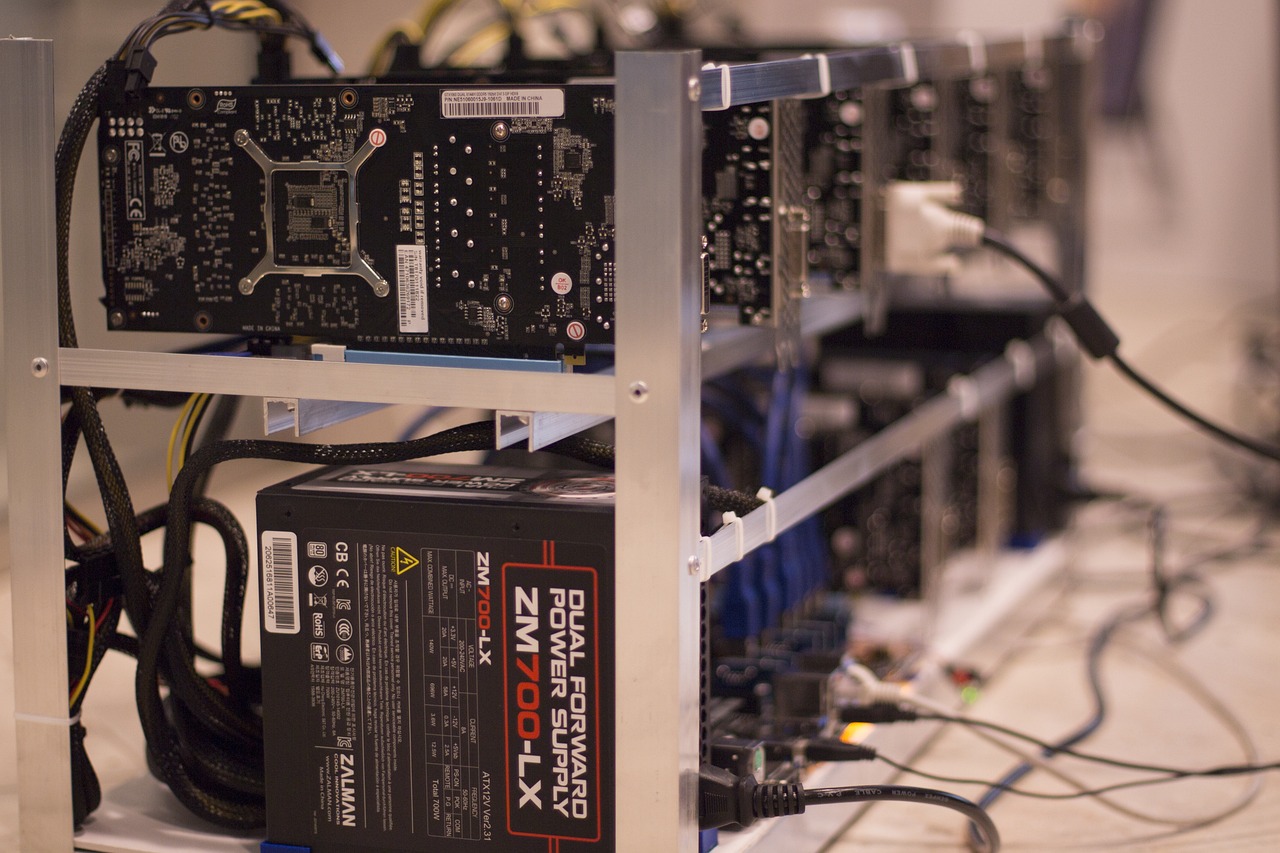
The Importance of Crypto Payment Gateways
In today's rapidly evolving digital landscape, crypto payment gateways have emerged as pivotal players in the realm of online commerce. These gateways serve as the bridge between traditional finance and the burgeoning world of digital currencies. Imagine trying to cross a river without a bridge—this is how businesses feel without a reliable payment gateway to facilitate cryptocurrency transactions. By enabling businesses to accept cryptocurrencies, these gateways are not just a trend; they are reshaping the way we think about money and transactions.
One of the most significant advantages of crypto payment gateways is their ability to facilitate seamless transactions between buyers and sellers. This is particularly important in a global marketplace where customers expect instant transactions and diverse payment options. With the rise of cryptocurrencies, businesses can now cater to a wider audience, tapping into markets that were previously inaccessible due to geographical or financial barriers.
Moreover, crypto payment gateways operate 24/7, providing businesses with the flexibility to conduct transactions at any time. This is a game-changer for companies operating in different time zones or those that want to capitalize on the growing trend of international e-commerce. By eliminating the constraints of traditional banking hours, businesses can enhance their operational efficiency and customer satisfaction.
Another critical aspect of these gateways is their role in reducing transaction costs. Traditional payment methods often come with hefty fees, especially for cross-border transactions. In contrast, crypto payment gateways typically offer lower fees, making them an attractive option for businesses looking to maximize their profits. This cost-effectiveness can be particularly beneficial for small and medium-sized enterprises (SMEs) that may struggle with the high fees associated with conventional payment processors.
It's also worth noting that the integration of crypto payment gateways into existing business models can lead to increased customer trust. As more consumers become aware of and comfortable with cryptocurrencies, businesses that accept these digital currencies can position themselves as forward-thinking and innovative. This not only attracts a tech-savvy clientele but also builds brand loyalty among customers who appreciate the convenience and security that crypto transactions provide.
In summary, the importance of crypto payment gateways cannot be overstated. They are essential for businesses aiming to thrive in the digital economy, offering benefits such as enhanced transaction speed, reduced costs, and broader market access. As we move further into the future, these gateways will undoubtedly play a crucial role in shaping the financial landscape, making it imperative for businesses to embrace this technological shift.

How Crypto Payment Gateways Work
Understanding how crypto payment gateways operate is essential for businesses looking to embrace the digital currency revolution. These platforms serve as intermediaries, allowing merchants to accept cryptocurrencies as a form of payment while ensuring that the entire process is seamless and secure. At their core, crypto payment gateways leverage blockchain technology to facilitate transactions, making them both efficient and transparent.
The process typically starts when a customer decides to make a purchase using cryptocurrency. Upon checkout, the payment gateway generates a unique wallet address for the transaction. This address acts like an email address, allowing the customer to send the required amount of cryptocurrency directly to the merchant's wallet. The beauty of this system lies in its simplicity and speed, which is crucial in today’s fast-paced market.
Once the customer initiates a transaction, several key steps occur:
- Initiation: The customer selects the cryptocurrency they wish to use and confirms the transaction amount.
- Verification: The payment gateway verifies the transaction details and checks the customer’s wallet for sufficient funds.
- Confirmation: After verification, the transaction is submitted to the blockchain for processing.
- Completion: Once the transaction is confirmed on the blockchain, the merchant receives a notification, and the funds are credited to their wallet.
This entire process happens in a matter of minutes, and the use of blockchain technology ensures that each transaction is recorded securely and immutably. The decentralized nature of blockchain also means that there is no need for intermediaries like banks, which can often slow down the payment process.
Security is paramount in the world of cryptocurrencies. Crypto payment gateways implement various security protocols to protect against fraud and hacking. These measures include:
- Encryption: Sensitive data is encrypted to prevent unauthorized access.
- Two-Factor Authentication (2FA): Additional layers of security ensure that only authorized users can access accounts.
- Fraud Detection Systems: Advanced algorithms monitor transactions for unusual patterns that may indicate fraud.
By employing these security measures, payment gateways not only protect the funds involved but also build trust with their users, which is essential for the widespread adoption of cryptocurrency.
While crypto payment gateways offer many advantages, it’s essential to be aware of the associated costs. Typically, businesses can expect to encounter:
| Fee Type | Description |
|---|---|
| Transaction Fees | A small percentage of the transaction amount, often lower than traditional credit card fees. |
| Service Charges | Monthly or annual fees for using the payment gateway's services. |
Understanding these fees helps businesses make informed decisions when integrating crypto payment gateways into their operations, ensuring they can maximize their profits while minimizing costs.
Integrating crypto payment gateways into popular e-commerce platforms is a straightforward process. Most gateways provide plugins or APIs that allow merchants to add cryptocurrency payment options to their existing checkout systems. This integration not only enhances payment flexibility but also expands market reach by attracting tech-savvy customers who prefer using digital currencies. In a world where customer preferences are constantly evolving, staying ahead of the curve is crucial for success.
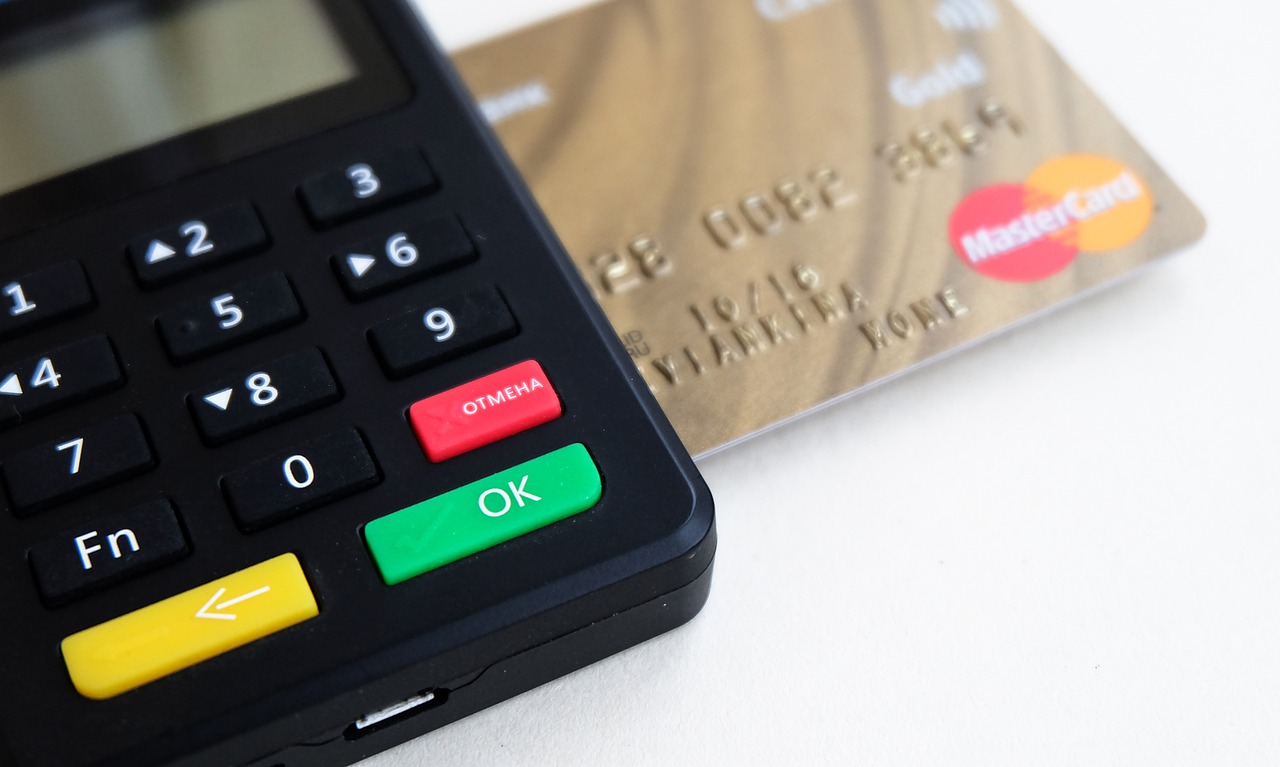
Transaction Processing
When it comes to crypto payment gateways, understanding the transaction processing mechanism is crucial for both businesses and consumers. The journey of a cryptocurrency transaction is akin to sending a letter through the postal service. Just as you would drop a letter in the mailbox, the transaction begins when a buyer initiates a payment. This process involves several steps that ensure the transaction is executed securely and efficiently.
First, the buyer selects their desired product or service and chooses a cryptocurrency as their payment method. Once the payment option is selected, the crypto payment gateway generates a unique transaction address for the buyer. This address acts like the destination address on a letter, ensuring that the funds are directed to the correct recipient.
Next, the buyer confirms the transaction details, including the amount to be paid. Upon confirmation, the gateway encrypts this information and communicates it to the blockchain network. At this stage, the transaction is broadcasted to the network, where it awaits validation by miners or validators. This is similar to how a letter is picked up by the postal service and routed through various hubs before reaching its destination.
Once the transaction is validated, it gets added to a block on the blockchain, making it immutable and transparent. This step is crucial because it ensures that the transaction cannot be altered or reversed, much like how a letter cannot be changed once it’s delivered. The entire process, from initiation to confirmation, typically takes anywhere from a few seconds to several minutes, depending on the cryptocurrency and network congestion. Speed is of the essence in today’s fast-paced world, and crypto payment gateways strive to ensure that transactions are processed as swiftly as possible.
Security plays a pivotal role in transaction processing. Payment gateways employ various security measures, such as SSL encryption and multi-signature wallets, to protect against fraud and hacking attempts. These security protocols act like a lock on your mailbox, ensuring that only the intended recipient can access the contents of the transaction. In addition, many gateways provide real-time transaction tracking, allowing users to monitor the status of their payments until they are confirmed on the blockchain.
In summary, the transaction processing in crypto payment gateways is a complex yet fascinating journey that involves multiple steps to ensure security, speed, and accuracy. As the world increasingly embraces digital currencies, understanding this process becomes essential for anyone looking to engage in cryptocurrency transactions.
- What is a crypto payment gateway? A crypto payment gateway is a service that allows businesses to accept cryptocurrencies as payment for goods and services.
- How long does a transaction take? Transaction times can vary, typically ranging from a few seconds to several minutes, depending on the cryptocurrency and network conditions.
- Are crypto transactions secure? Yes, crypto transactions are secured through various encryption methods and blockchain technology, making them difficult to alter or hack.
- What fees are associated with crypto payment gateways? Fees can include transaction fees and service charges, which vary by gateway.

Security Measures
In the world of cryptocurrency, where digital assets can change hands in the blink of an eye, security is not just a priority; it’s a necessity. Crypto payment gateways implement a variety of robust security measures to ensure that transactions are not only swift but also safe from potential threats. Imagine walking into a bank where every door is open, and there are no security guards. Sounds risky, right? Well, that’s how cryptocurrency transactions would feel without stringent security protocols.
To safeguard against fraud and hacking, crypto payment gateways utilize a multi-layered approach to security. This includes encryption protocols, which are akin to a secret code that only the sender and receiver can understand. The most commonly used encryption standard is AES-256, which provides a high level of security. Additionally, many gateways employ two-factor authentication (2FA), adding an extra layer of protection by requiring users to verify their identity through a second device, such as a smartphone.
Moreover, transaction monitoring plays a crucial role in security. Payment gateways continuously analyze transaction patterns to identify any unusual activity that could indicate fraud. This proactive approach allows them to intervene before any damage occurs. They often employ machine learning algorithms that evolve and adapt, improving their ability to detect anomalies over time.
Furthermore, many crypto payment gateways store funds in cold wallets, which are offline and not connected to the internet. This significantly reduces the risk of hacking. In contrast, hot wallets are online and more vulnerable to attacks. By keeping the majority of funds in cold storage, companies can protect their assets even if their online systems are compromised.
In summary, the security measures adopted by crypto payment gateways are comprehensive and multi-faceted. They not only protect the interests of businesses but also instill confidence in consumers, allowing them to engage in cryptocurrency transactions without fear. However, it is essential for users to remain vigilant and choose payment gateways that prioritize security, ensuring a safe and seamless transaction experience.
- What are the most common security measures in crypto payment gateways?
Common measures include encryption, two-factor authentication, transaction monitoring, and the use of cold wallets for fund storage.
- How can businesses ensure they are using a secure crypto payment gateway?
Businesses should look for gateways that provide transparent security protocols, have a good reputation, and are compliant with regulatory standards.
- What should users do if they suspect fraud in a cryptocurrency transaction?
Users should immediately contact their payment gateway's support team, report the suspicious activity, and take steps to secure their accounts.
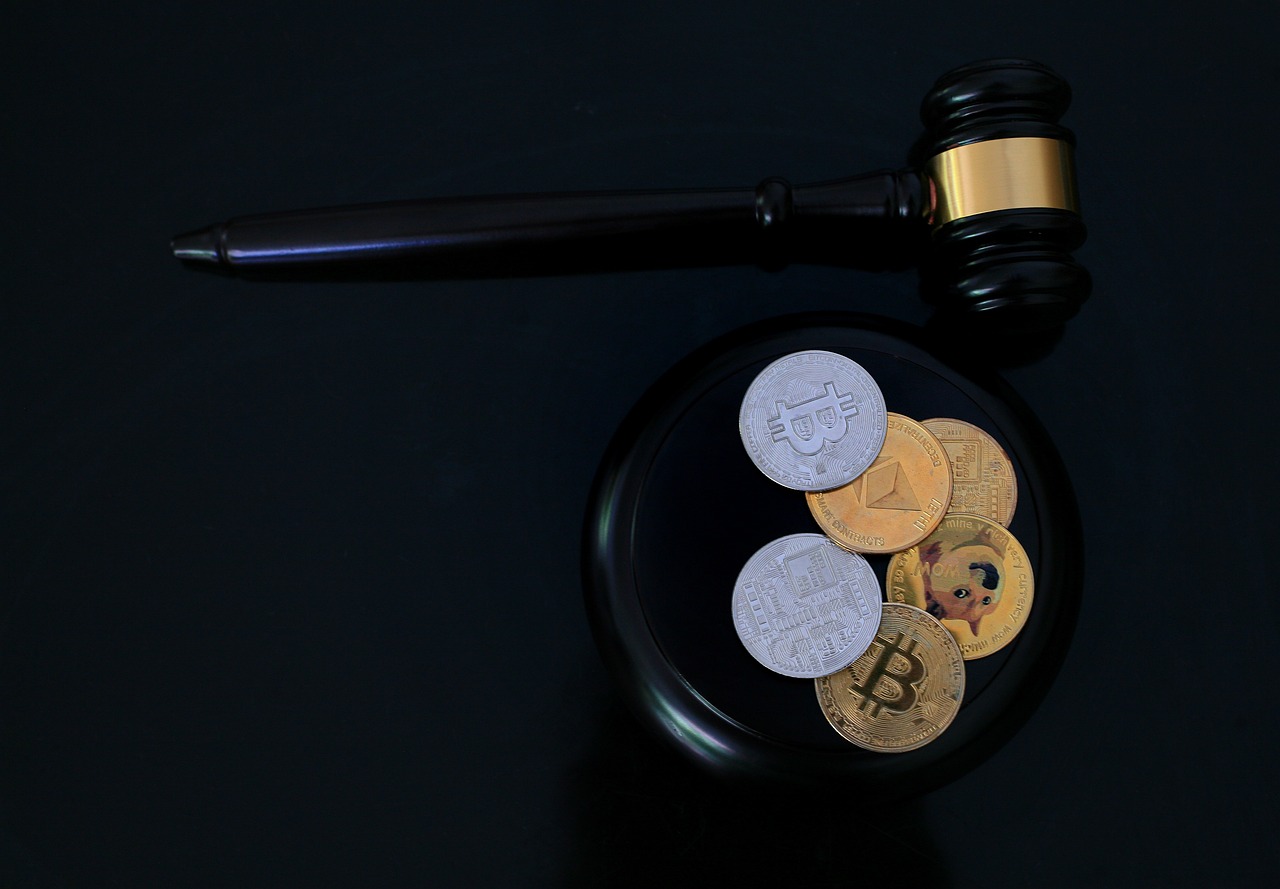
Fees and Charges
When diving into the world of crypto payment gateways, one of the first things businesses should consider is the associated with these platforms. While the allure of accepting cryptocurrencies can be enticing, understanding the cost structure is crucial for maintaining profitability. Generally, crypto payment gateways charge a variety of fees that can include transaction fees, service charges, and conversion fees. These fees can vary significantly from one provider to another, so it’s essential to shop around and find the best fit for your business needs.
Transaction fees typically range from 0.5% to 5% of the transaction amount, depending on the payment gateway. This means that if your business processes a $100 transaction, you could end up paying anywhere from $0.50 to $5.00 in fees. While this may seem reasonable compared to traditional credit card fees, which can reach up to 3% or more, it’s important to factor in additional costs that may arise.
Service charges can also come into play, particularly if you’re using a gateway that offers advanced features such as fraud detection, analytics, or customer support. These charges are often structured as a monthly fee and can range from $10 to $100, depending on the level of service provided. Businesses should carefully assess whether these additional services justify the extra cost.
Moreover, if you’re dealing with multiple cryptocurrencies, conversion fees may apply when exchanging one cryptocurrency for another or converting cryptocurrency to fiat currency. These fees can fluctuate based on market conditions and the specific gateway’s policies. It’s crucial to read the fine print and understand how these fees can impact your bottom line.
To give you a clearer picture, here’s a simple breakdown of potential fees you might encounter:
| Fee Type | Typical Range | Notes |
|---|---|---|
| Transaction Fee | 0.5% - 5% | Varies by gateway and transaction size. |
| Service Charge | $10 - $100/month | Depends on the service level and features. |
| Conversion Fee | Varies | Based on market conditions and gateway policies. |
In summary, while crypto payment gateways offer a modern solution for accepting digital currencies, it’s essential to be aware of the associated fees and charges. By understanding these costs, businesses can make informed decisions that align with their financial goals. Always remember, the goal is to maximize efficiency while minimizing costs, ensuring that the transition to accepting cryptocurrencies is a profitable one.
- What are transaction fees in crypto payment gateways? Transaction fees are charges applied by payment gateways for processing cryptocurrency transactions, usually ranging from 0.5% to 5% of the transaction amount.
- Are there any monthly service charges? Yes, many crypto payment gateways charge a monthly service fee that can vary based on the features offered, typically ranging from $10 to $100.
- What are conversion fees? Conversion fees apply when exchanging one cryptocurrency for another or converting cryptocurrency into fiat currency, and these can vary based on market conditions.
- How can I choose the right crypto payment gateway? Consider factors such as fees, features, customer support, and the specific cryptocurrencies accepted when selecting a payment gateway.
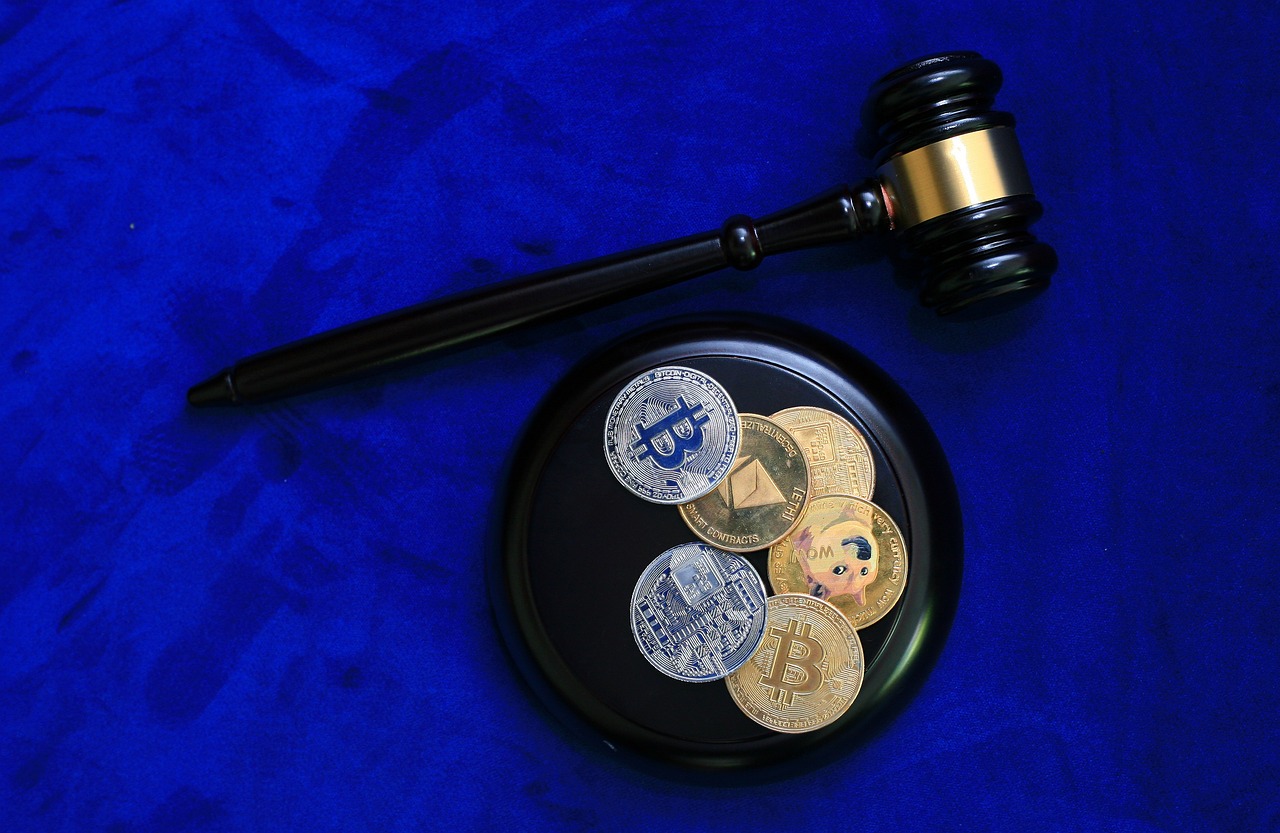
Integration with E-commerce Platforms
Integrating crypto payment gateways into e-commerce platforms is a game changer for businesses looking to expand their payment options. Imagine a world where your customers can pay for their favorite products with the click of a button, using their preferred cryptocurrency. That's the beauty of these gateways! They seamlessly connect the digital currency world with traditional e-commerce, making transactions smoother and more efficient.
Many popular e-commerce platforms, such as Shopify, WooCommerce, and Magento, now offer easy integration options for crypto payment gateways. This means that businesses can quickly set up their online stores to accept cryptocurrencies without needing extensive technical knowledge. The process typically involves a few simple steps:
- Choosing a reliable crypto payment gateway provider.
- Installing the necessary plugins or extensions on your e-commerce platform.
- Configuring the settings to accept specific cryptocurrencies.
- Testing the payment process to ensure everything runs smoothly.
Once integrated, businesses can tap into a global market, allowing customers from different regions to make purchases effortlessly. This is particularly beneficial in today's digital age, where consumers are increasingly looking for diverse payment methods. By offering crypto payments, businesses not only cater to tech-savvy customers but also enhance their brand's image as innovative and forward-thinking.
Moreover, the integration process often comes with additional features that can boost sales. For instance, some gateways provide built-in analytics tools that help businesses track transactions and customer preferences. This data can be invaluable for tailoring marketing strategies and improving customer engagement.
However, while the integration of crypto payment gateways is relatively straightforward, businesses should remain cautious. It’s essential to conduct thorough research on the chosen gateway provider to ensure they offer robust security measures and excellent customer support. After all, the last thing you want is to compromise your customers' sensitive information or face downtime during peak shopping hours!
In conclusion, integrating crypto payment gateways into e-commerce platforms opens up a world of possibilities for businesses. It not only enhances the customer experience by providing more payment options but also positions brands at the forefront of the digital economy. As cryptocurrencies continue to gain traction, embracing this technology could very well be the key to staying competitive in a rapidly evolving marketplace.
Q1: What is a crypto payment gateway?
A crypto payment gateway is a service that allows businesses to accept cryptocurrency payments from customers. It acts as a bridge between the digital currency and traditional banking systems, facilitating secure and efficient transactions.
Q2: How can I integrate a crypto payment gateway into my e-commerce platform?
Integration typically involves selecting a payment gateway provider, installing necessary plugins, configuring settings, and testing the payment process. Many platforms offer user-friendly guides to assist with this.
Q3: Are there any fees associated with using crypto payment gateways?
Yes, most crypto payment gateways charge transaction fees, which can vary based on the provider. It's essential to review these fees to understand the cost implications for your business.
Q4: Can I accept multiple cryptocurrencies?
Most crypto payment gateways allow businesses to accept a variety of cryptocurrencies, giving customers the flexibility to pay with their preferred digital currency.
Q5: What security measures should I look for in a crypto payment gateway?
Look for gateways that offer robust security protocols, such as encryption, fraud detection systems, and two-factor authentication, to protect your transactions and customer data.

Benefits of Using Crypto Payment Gateways
In today's fast-paced digital economy, crypto payment gateways are becoming a game changer for businesses looking to enhance their payment options. Imagine a world where transactions occur in seconds, and fees are significantly lower than traditional payment methods. That's the reality these gateways bring to the table. By enabling businesses to accept cryptocurrencies, they not only simplify the payment process but also open doors to a plethora of opportunities.
One of the standout benefits of using crypto payment gateways is their ability to reduce transaction fees. Traditional payment processors often charge hefty fees for each transaction, which can eat into profit margins. In contrast, crypto transactions typically come with lower fees, allowing businesses to save money and pass those savings on to customers. This is particularly advantageous for small and medium-sized enterprises (SMEs) that operate on tight budgets.
Furthermore, the speed of transactions is another compelling reason to adopt these gateways. Unlike conventional banking systems, which can take several days to process payments, crypto transactions can be completed in a matter of minutes. This rapid processing not only enhances the customer experience but also allows businesses to manage cash flow more effectively. Imagine receiving payments instantly, enabling you to reinvest in your business without delay!
Another significant advantage is the global reach that crypto payment gateways provide. In a world where e-commerce knows no borders, businesses can transact with customers from all corners of the globe without worrying about currency conversion fees or international banking restrictions. This opens up a whole new market for businesses, allowing them to attract a diverse customer base. With the right crypto payment gateway, a small local shop can become a global player in no time.
Additionally, the enhanced customer experience that comes with using crypto payment gateways is hard to overlook. Customers today are looking for convenience and flexibility when it comes to payment options. By offering cryptocurrencies as a payment method, businesses can cater to tech-savvy consumers who prefer digital currencies. This not only improves customer satisfaction but also encourages repeat business. After all, who doesn't enjoy a smooth and quick checkout process?
However, it's not just about the benefits; businesses must also consider how these gateways can integrate with existing systems. Many crypto payment gateways offer easy integration with popular e-commerce platforms, making the transition seamless. This means businesses can start accepting cryptocurrencies without a complete overhaul of their payment systems.
In conclusion, adopting crypto payment gateways is not just a trend; it's a strategic move that can significantly benefit businesses. From lower fees and faster transactions to a broader market reach and enhanced customer experiences, the advantages are clear. As the digital economy continues to evolve, those who embrace these innovations will likely stay ahead of the curve.
- What are crypto payment gateways?
Crypto payment gateways are platforms that allow businesses to accept cryptocurrencies as a form of payment, facilitating transactions between buyers and sellers.
- How do crypto payment gateways work?
They work by processing cryptocurrency transactions securely and efficiently, converting digital currency into fiat currency when necessary.
- What are the fees associated with crypto payment gateways?
Fees can vary but are generally lower than traditional payment processors, including transaction fees and service charges.
- Can businesses integrate crypto payment gateways with their existing systems?
Yes, many crypto payment gateways offer easy integration with popular e-commerce platforms.
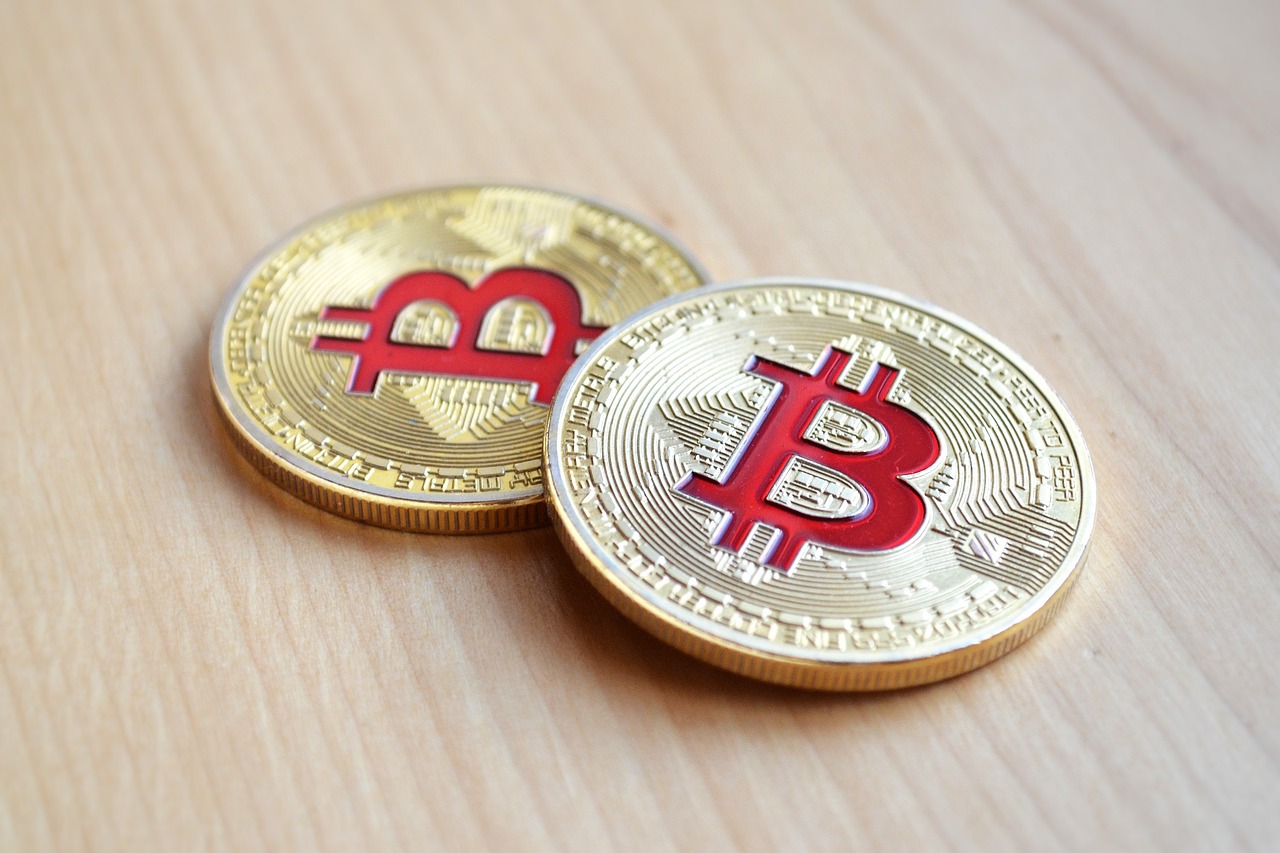
Global Reach
In today's interconnected world, businesses are no longer confined by geographical boundaries. With the advent of crypto payment gateways, companies can now seamlessly transact with customers across the globe. Imagine a local artisan selling handmade crafts in a small town, but with the ability to reach customers in New York, Tokyo, or even Sydney—all thanks to cryptocurrency. This is not just a dream; it’s a reality that many businesses are embracing.
By accepting cryptocurrencies, businesses can tap into a vast market of potential customers who prefer to use digital currencies over traditional fiat. This is particularly important in regions where banking infrastructure is lacking or where high transaction fees make traditional payment methods impractical. For instance, in many parts of Africa and Southeast Asia, people are turning to cryptocurrencies as a more accessible means of conducting transactions. This shift is empowering individuals and businesses, fostering economic growth in areas that were previously underserved.
Furthermore, crypto payment gateways eliminate the need for currency conversion, which can often lead to hidden fees and delays in transactions. This means that a business in Europe can sell its products directly to customers in Latin America without worrying about fluctuating exchange rates. The transaction occurs in real-time, making it a win-win situation for both parties. In fact, studies have shown that businesses that adopt crypto payment solutions often see an increase in international sales, as customers feel more comfortable making purchases when they can use their preferred payment method.
To illustrate the impact of global reach through crypto payment gateways, consider the following table:
| Region | Common Payment Challenges | Benefits of Crypto Payments |
|---|---|---|
| Africa | Limited banking access, high fees | Accessibility, lower transaction costs |
| Latin America | Currency instability, fraud | Stability through crypto, secure transactions |
| Asia | High remittance fees | Fast transfers, reduced costs |
As businesses continue to expand their horizons, the role of crypto payment gateways in facilitating global transactions cannot be overstated. They not only provide a mechanism for instant payments but also foster trust and transparency in the transaction process. In a world where every second counts, having the ability to transact with anyone, anywhere, at any time is a game changer. As more consumers become comfortable with using cryptocurrencies, the demand for businesses to adopt these payment solutions will only increase, further solidifying the importance of global reach in the digital economy.
- What are crypto payment gateways? - These are platforms that allow businesses to accept cryptocurrency payments from customers.
- How do crypto payment gateways enhance global reach? - They enable businesses to transact with customers worldwide without the need for currency conversion or traditional banking limitations.
- Are there any risks associated with using crypto payment gateways? - Yes, risks include regulatory concerns and cryptocurrency volatility, but many businesses implement strategies to mitigate these risks.

Enhanced Customer Experience
In today's fast-paced digital world, customer experience is everything. When it comes to online shopping, customers expect seamless transactions that are not only quick but also secure and convenient. This is where crypto payment gateways shine, offering a unique blend of benefits that traditional payment methods often struggle to match. Imagine walking into a store and being able to pay with your favorite cryptocurrency without the hassle of currency conversion or waiting for bank approvals. That's the kind of experience crypto payment gateways aim to provide!
One of the most significant advantages of using crypto payment gateways is the speed of transactions. Unlike traditional banking systems that can take days to process payments, crypto transactions can be completed in a matter of minutes. This rapid processing time not only enhances the shopping experience but also encourages customers to complete their purchases rather than abandon their carts due to lengthy payment procedures. It's like having a fast pass at an amusement park—no one wants to wait in line when they can zip right through!
Moreover, the variety of payment options available through crypto payment gateways adds another layer of convenience for customers. With the ability to pay using various cryptocurrencies, customers can choose their preferred method of payment. This flexibility is crucial in catering to a global audience, as different regions may have varying preferences for digital currencies. The more options you provide, the more likely customers are to feel welcome and valued.
Security is another critical factor that enhances customer experience. Crypto payment gateways employ advanced security protocols, such as blockchain technology and encryption, to safeguard transactions. This level of protection not only assures customers that their financial information is secure but also builds trust between them and the business. After all, nobody wants to shop where they feel their personal data might be compromised!
Additionally, the anonymity offered by cryptocurrency transactions is a significant draw for many customers. In an age where privacy concerns are at an all-time high, being able to make purchases without revealing personal information can be a game changer. Customers can enjoy their shopping experience without the fear of their data being sold or misused. This aspect of crypto transactions is akin to shopping in a store where you can pay in cash—no strings attached!
In summary, the integration of crypto payment gateways not only streamlines the payment process but also significantly enhances the overall customer experience. With faster transactions, a variety of payment options, heightened security, and the benefit of anonymity, businesses can create an environment where customers feel valued and secure. As more consumers become familiar with cryptocurrencies, the demand for such payment solutions is bound to grow, making it essential for businesses to adapt and evolve.
- What is a crypto payment gateway?
A crypto payment gateway is a service that allows businesses to accept cryptocurrency as a form of payment for goods and services. It facilitates the conversion of cryptocurrencies into fiat currencies and handles transaction processing securely.
- How do crypto payment gateways enhance customer experience?
They provide faster transaction processing, a variety of payment options, enhanced security, and anonymity, all of which contribute to a smoother and more satisfying shopping experience.
- Are crypto transactions safe?
Yes, crypto payment gateways use advanced security measures, including blockchain technology and encryption, to protect transactions and customer data from fraud and hacking.
- Can businesses integrate crypto payment gateways with existing e-commerce platforms?
Absolutely! Many crypto payment gateways offer easy integration with popular e-commerce platforms, allowing businesses to expand their payment options without overhauling their existing systems.

Challenges and Limitations
Despite the numerous advantages that crypto payment gateways offer, they are not without their challenges and limitations. As the cryptocurrency landscape continues to evolve, various hurdles arise that can affect both businesses and consumers. One major concern is the ever-changing regulatory environment. Governments around the world are still figuring out how to approach cryptocurrencies, leading to uncertainty for businesses that want to adopt these payment methods. This regulatory ambiguity can create a lack of trust among consumers, making them hesitant to use cryptocurrencies for transactions.
Another significant challenge is the issue of volatility. The prices of cryptocurrencies can fluctuate wildly within short periods, which poses a risk for both merchants and customers. For instance, if a customer makes a purchase using Bitcoin, and the value of Bitcoin drops dramatically before the merchant can convert it to fiat currency, the merchant could incur a loss. To mitigate this risk, some businesses use stablecoins—cryptocurrencies designed to maintain a stable value—but this introduces its own set of complications.
Furthermore, user adoption remains a hurdle. While cryptocurrencies are gaining popularity, many consumers are still unfamiliar with how to use them. This lack of understanding can lead to frustration during the checkout process, which could deter potential customers from completing their transactions. To address this, businesses need to invest in educating their customers about how to navigate the world of cryptocurrencies, which can be an additional burden.
In addition to these issues, there are also practical limitations such as transaction speed and scalability. While some cryptocurrencies offer fast transaction times, others can be slow and cumbersome, especially during peak usage times. This can lead to delays in payment processing, which is detrimental to the customer experience. Moreover, as more businesses adopt crypto payment gateways, the demand on the blockchain networks can increase, potentially leading to congestion and higher fees.
To summarize, the challenges and limitations of crypto payment gateways can be categorized as follows:
- Regulatory Concerns: Uncertainty in laws and regulations regarding cryptocurrency usage.
- Volatility: Fluctuating cryptocurrency prices leading to potential financial losses.
- User Adoption: Many consumers are still unfamiliar with cryptocurrencies.
- Transaction Speed: Variability in processing times can impact customer satisfaction.
- Scalability: Increased demand on blockchain networks may lead to congestion.
In conclusion, while crypto payment gateways present exciting opportunities, it is essential for businesses to be aware of these challenges and to develop strategies to navigate them effectively. By addressing these limitations head-on, companies can better position themselves to thrive in the evolving digital economy.
What are crypto payment gateways?
Crypto payment gateways are platforms that enable businesses to accept cryptocurrency payments from customers, facilitating transactions between buyers and sellers in the digital economy.
What are the main challenges of using crypto payment gateways?
The main challenges include regulatory uncertainty, price volatility of cryptocurrencies, user adoption difficulties, transaction speed issues, and scalability concerns.
How can businesses mitigate the risks associated with cryptocurrency volatility?
Businesses can mitigate risks by using stablecoins, hedging strategies, and ensuring they have a clear understanding of the market trends.
Are crypto payment gateways secure?
Yes, most crypto payment gateways implement advanced security measures, including encryption and fraud detection protocols, to protect against potential threats.
How can businesses educate their customers about using cryptocurrencies?
Businesses can provide tutorials, user guides, and customer support to help educate their customers on how to use cryptocurrencies effectively for transactions.
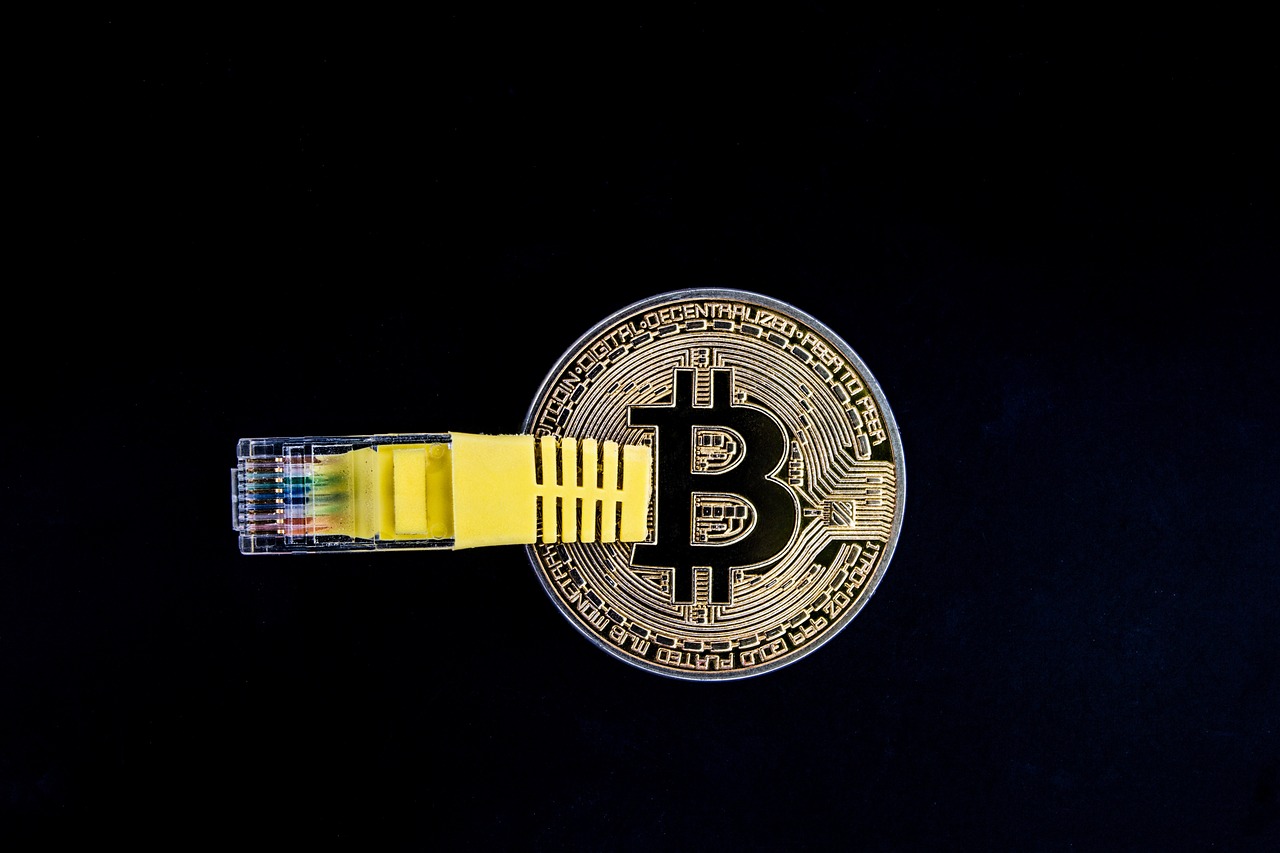
Regulatory Concerns
The world of cryptocurrencies is like a double-edged sword; while it offers immense opportunities for innovation and financial inclusion, it also presents significant regulatory challenges. As businesses embrace crypto payment gateways, they must navigate a complex landscape of regulations that vary from country to country. This regulatory maze can often feel overwhelming, but understanding it is crucial for any business looking to thrive in the digital economy.
One of the primary regulatory concerns is the lack of a unified framework governing cryptocurrencies. Different jurisdictions have different rules, and this inconsistency can create confusion for businesses and consumers alike. For instance, while some countries have embraced cryptocurrencies and established clear guidelines for their use, others have imposed strict bans or limitations. This disparity can lead to complications when businesses try to operate internationally, as they must comply with multiple sets of regulations.
Moreover, regulatory bodies are increasingly focusing on anti-money laundering (AML) and know-your-customer (KYC) regulations. These laws require businesses to verify the identities of their users and monitor transactions for suspicious activity. While these measures are essential for preventing fraud and illicit activities, they can also create additional burdens for businesses. Implementing robust KYC and AML practices can be time-consuming and costly, particularly for smaller enterprises that may lack the resources to manage these requirements effectively.
Another significant concern is the potential for regulatory changes. The cryptocurrency landscape is evolving rapidly, and what is permissible today may not be tomorrow. Businesses that invest heavily in crypto payment gateways could find themselves at risk if regulations tighten unexpectedly. For instance, sudden changes in tax laws or transaction reporting requirements could impact the viability of their payment systems, leading to potential financial losses.
To illustrate the regulatory landscape, consider the following table that highlights the different approaches taken by various countries:
| Country | Regulatory Approach | Key Regulations |
|---|---|---|
| United States | Mixed | SEC, CFTC regulations |
| European Union | Developing | MiCA (Markets in Crypto-Assets) |
| China | Restrictive | Ban on ICOs and crypto trading |
| Japan | Supportive | FSA regulations |
As businesses consider integrating crypto payment gateways, it is essential for them to stay informed about the regulatory environment. Engaging with legal experts and industry associations can provide valuable insights and help companies navigate these complexities. Additionally, proactive compliance strategies can mitigate risks and foster trust among customers, further enhancing the reputation of businesses in the crypto space.
In conclusion, while regulatory concerns pose challenges for crypto payment gateways, they also present an opportunity for businesses to demonstrate their commitment to ethical practices and consumer protection. By understanding and adapting to the regulatory landscape, businesses can not only survive but thrive in the dynamic world of cryptocurrency.
- What are crypto payment gateways? Crypto payment gateways are platforms that enable businesses to accept cryptocurrencies as payment for goods and services.
- Why are regulatory concerns important? Regulatory concerns are crucial because they can affect how businesses operate, the costs involved, and their overall compliance with the law.
- How can businesses stay compliant with regulations? Businesses can stay compliant by regularly consulting with legal experts, implementing KYC and AML practices, and staying updated on regulatory changes.
- What are the risks of non-compliance? Non-compliance can lead to legal penalties, financial losses, and damage to a company's reputation.
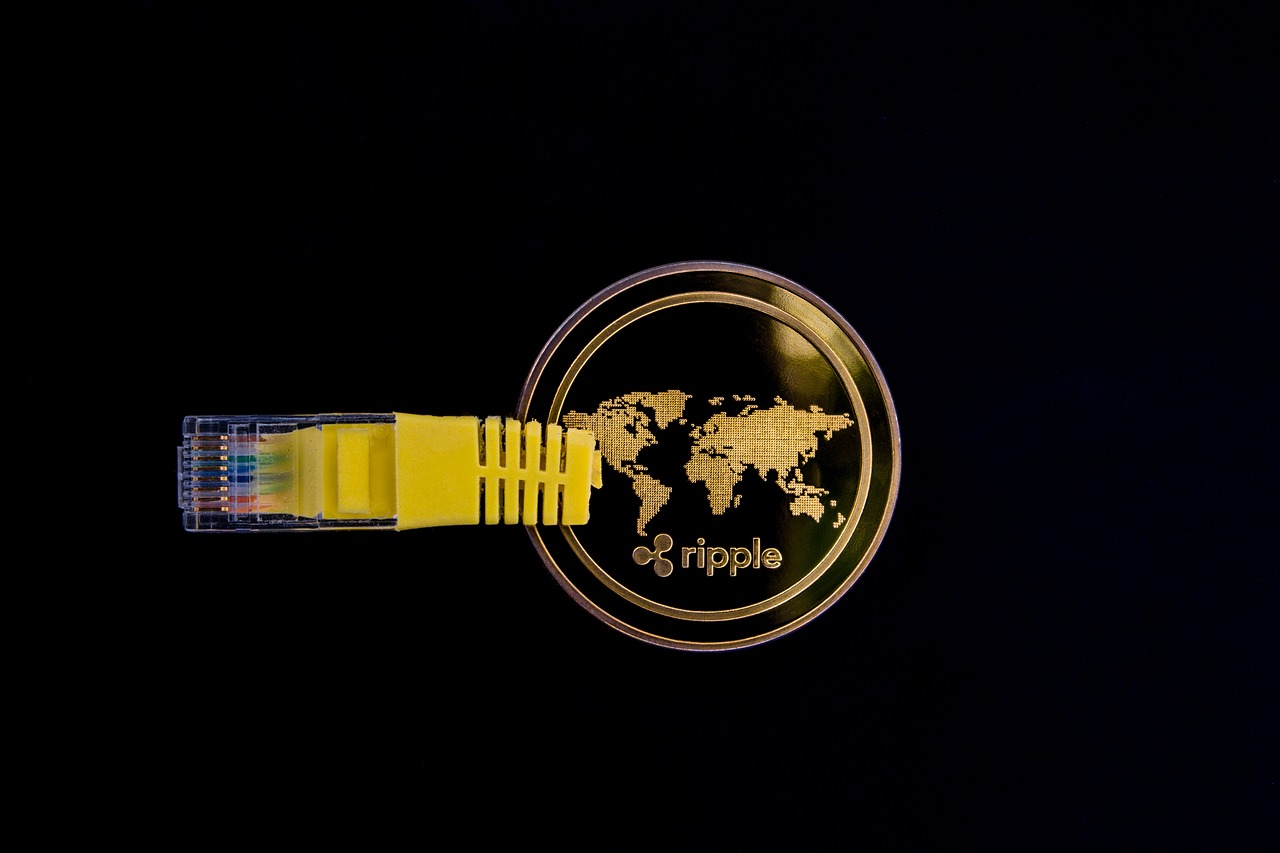
Volatility Issues
When it comes to cryptocurrencies, one of the most significant hurdles that businesses face is volatility. Imagine waking up one day to find that the value of your digital assets has plummeted or skyrocketed overnight—this is the reality for many who engage in crypto transactions. This unpredictability can create a myriad of challenges for businesses that rely on crypto payment gateways. For instance, a merchant accepting Bitcoin might sell a product for $100 worth of Bitcoin today, but by tomorrow, that same Bitcoin could be worth only $80 or, conversely, $120. This fluctuation can lead to major financial losses or unexpected windfalls, which can be quite unsettling for any business owner.
To combat these volatility issues, businesses can adopt several strategies. First, they can implement real-time conversion tools that allow them to convert cryptocurrency into fiat currency immediately after a transaction is completed. This way, they can lock in the value of the transaction at the moment it's made, minimizing the risk of loss due to price drops. Additionally, some payment gateways offer options to hold funds in stablecoins—cryptocurrencies designed to maintain a stable value pegged to traditional currencies, such as the US dollar. This can provide a sense of stability in an otherwise tumultuous market.
Moreover, businesses should also consider establishing clear policies regarding price adjustments for their goods and services. For example, if a business notices a significant drop in the value of a cryptocurrency they accept, they could implement a temporary price increase to offset potential losses. This approach requires careful monitoring of market trends and may require adjustments to pricing strategies on a frequent basis.
In summary, while the volatility of cryptocurrencies presents challenges, it also encourages businesses to be innovative and adaptive. By leveraging real-time conversion tools, utilizing stablecoins, and establishing clear pricing policies, businesses can navigate the stormy waters of crypto transactions more effectively. The key lies in understanding the risks and being prepared to respond swiftly to changes in the market.
- What is cryptocurrency volatility? Cryptocurrency volatility refers to the rapid and significant price fluctuations that digital currencies experience over short periods.
- How can businesses protect themselves from cryptocurrency volatility? Businesses can protect themselves by using real-time conversion tools, accepting stablecoins, and adjusting prices based on market conditions.
- Is it safe to accept cryptocurrencies as payment? While there are risks associated with accepting cryptocurrencies, implementing proper security measures and understanding market dynamics can mitigate these risks.
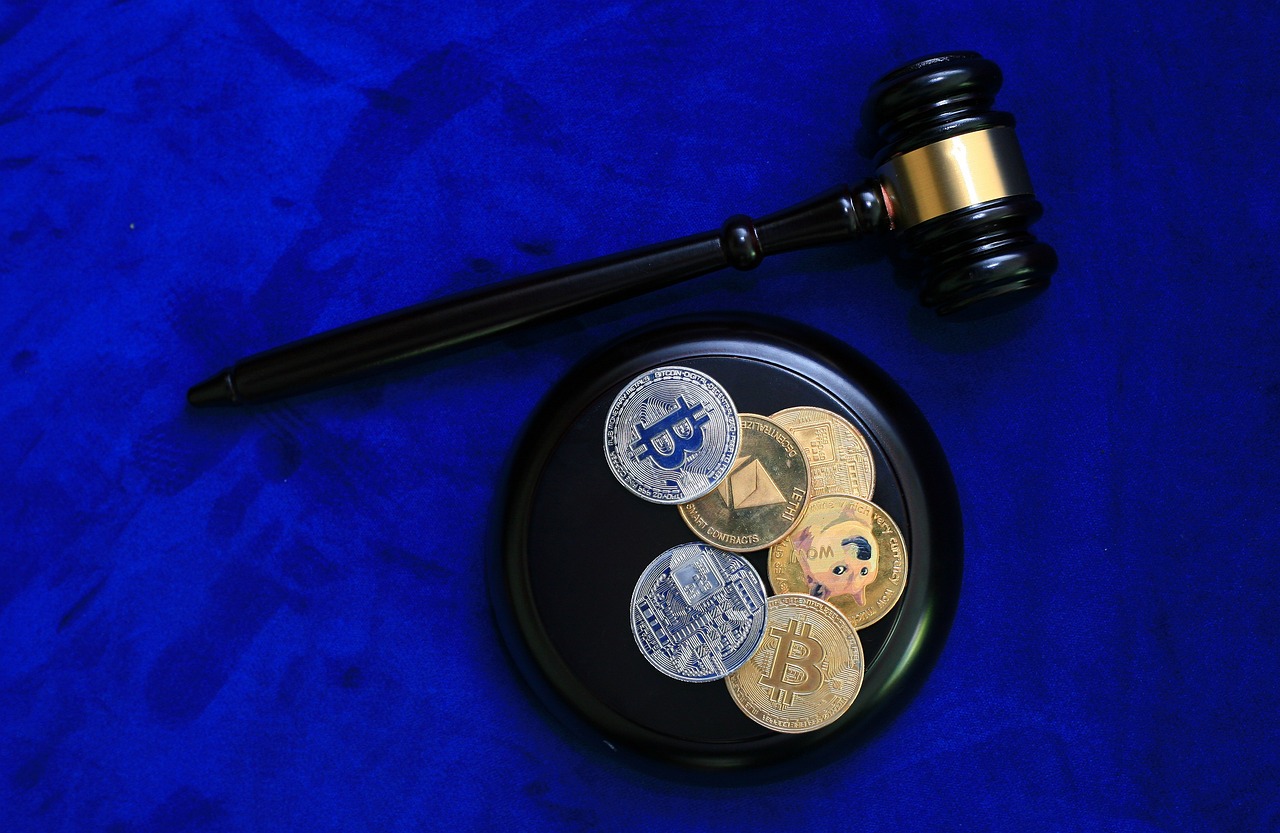
The Future of Crypto Payment Gateways
The future of crypto payment gateways is not just bright; it's blazing with potential! As we step deeper into the digital age, the landscape of commerce is evolving at lightning speed. With the increasing acceptance of cryptocurrencies, businesses are beginning to realize the immense benefits these payment gateways offer. Imagine a world where transactions are not only faster but also more secure and cost-effective. Sounds appealing, right? Well, it's closer than you think!
One of the most exciting aspects of the future of crypto payment gateways is the continuous advancement in technology. Innovations like the implementation of blockchain technology enhance transaction security and transparency. This means that as a business owner, you can rest easy knowing that your transactions are safeguarded against fraud and hacking attempts. Furthermore, the integration of smart contracts could automate various processes, reducing the need for intermediaries and thereby cutting costs.
Moreover, as more consumers become familiar with cryptocurrencies, the demand for seamless payment options will skyrocket. Businesses that adopt crypto payment gateways early on will not only meet this demand but also position themselves as forward-thinking leaders in their industries. Think about it: customers are always looking for convenience. By offering a variety of payment options, including cryptocurrencies, you’re not just keeping up with the trends but setting them!
However, it's essential to acknowledge that the future isn't without its challenges. Regulatory frameworks are still catching up with the rapid evolution of cryptocurrencies. Governments around the world are working to create guidelines that will protect consumers while allowing innovation to flourish. As these regulations become clearer, we can expect to see a surge in the adoption of crypto payment gateways, as businesses will feel more secure in their operations.
Another factor to consider is the volatility of cryptocurrencies. The fluctuating prices can make it tricky for businesses to manage their finances effectively. However, many companies are already exploring ways to mitigate these risks, such as using stablecoins or implementing automatic conversion features. This adaptability will be crucial for the survival of crypto payment gateways in the long run.
Finally, as we look ahead, the concept of decentralized finance (DeFi) is gaining traction. This movement aims to recreate traditional financial systems in a decentralized manner, which could revolutionize how payment gateways operate. By leveraging DeFi, crypto payment gateways could offer even more innovative solutions, such as lending and borrowing directly within the payment ecosystem. The possibilities are endless!
In summary, the future of crypto payment gateways is filled with opportunities and challenges. As technology continues to advance and consumer acceptance grows, businesses that embrace these changes will undoubtedly thrive. The key is to stay informed and adaptable. Are you ready to take the plunge into the future of payments?
- What are crypto payment gateways? - These are platforms that facilitate transactions between buyers and sellers using cryptocurrencies.
- How do crypto payment gateways enhance security? - They use advanced encryption and blockchain technology to secure transactions, minimizing the risk of fraud.
- What challenges do crypto payment gateways face? - Regulatory issues, cryptocurrency volatility, and user adoption are some of the primary challenges.
- How can businesses mitigate volatility risks? - By using stablecoins or automatic conversion features, businesses can protect themselves from price fluctuations.
- What is the future outlook for crypto payment gateways? - With ongoing technological advancements and increasing acceptance of cryptocurrencies, the future looks promising.
Frequently Asked Questions
- What is a crypto payment gateway?
A crypto payment gateway is a service that allows businesses to accept cryptocurrency payments from customers. It acts as a bridge between the digital currency and traditional financial systems, ensuring that transactions are processed securely and efficiently.
- How do crypto payment gateways work?
Crypto payment gateways work by processing cryptocurrency transactions through a series of steps. When a customer makes a purchase, the gateway converts the cryptocurrency into a fiat equivalent, verifies the transaction, and then transfers the funds to the merchant's account. This process is designed to be fast and secure, providing a smooth experience for both buyers and sellers.
- What are the benefits of using crypto payment gateways?
Using crypto payment gateways offers several advantages, such as lower transaction fees compared to traditional payment methods, faster processing times, and the ability to reach a global customer base. Additionally, they enhance customer experience by providing more flexible payment options and quicker checkouts.
- Are there any challenges associated with crypto payment gateways?
Yes, there are challenges, including regulatory concerns, price volatility of cryptocurrencies, and the need for user adoption. Businesses must stay informed about the evolving regulations and consider strategies to mitigate risks associated with cryptocurrency price fluctuations.
- How secure are crypto payment gateways?
Crypto payment gateways implement various security measures, such as encryption, two-factor authentication, and fraud detection systems, to protect against hacking and fraud. However, users should always ensure they are using reputable gateways to minimize risks.
- Can I integrate a crypto payment gateway into my existing e-commerce platform?
Absolutely! Many crypto payment gateways offer easy integration options with popular e-commerce platforms, allowing businesses to expand their payment options without significant technical challenges. This integration can help attract more customers and increase sales.
- What fees are associated with using crypto payment gateways?
Fees can vary depending on the gateway provider, but typically include transaction fees and service charges. It's essential for businesses to review the fee structure of each gateway to understand the cost implications for their operations.
- What does the future hold for crypto payment gateways?
The future of crypto payment gateways looks bright, with ongoing technological advancements and increasing acceptance of cryptocurrencies across various industries. We can expect to see more innovations that enhance security, speed, and user experience in the coming years.



















